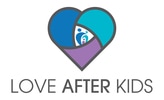Miguel Juancho “MJ” Fernandez is Communications and Special Projects Department at Makati Medical Center in the Philippines.
The US Census Bureau estimates that roughly 7.2% of children worldwide have ADHD, with the Centers for Disease Control and Prevention finding that boys are more likely to be diagnosed with the disorder than girls.
What makes this disorder hard to diagnose is distinguishing its symptoms from typical habit patterns in kids. After all, children are typically loud, active, and have short attention spans. The key is being able to draw the line between the two.
1. Lack of focus, especially in “uninteresting” tasks
Due to the lack of focus, they may also tend to avoid tasks that require sustained attention like listening to their teacher or doing homework. In addition, they may start multiple things all at once, but be unable to follow through. This may commonly be misinterpreted as procrastination or laziness on the child’s part.
2. Restlessness and inability to keep quiet
3. Frequent daydreaming
This could also cause them to be inattentive and distracted from the task or situation at hand.
4. Forgetfulness
These children will be able to hear what has been said to them but will experience difficulty repeating it.
5. Impulsiveness and recklessness
This impulsivity also leads to poorly-controlled emotions, making them prone to throwing tantrums and may even hit others when upset. These behaviors put them and their peers at risk of being hurt.
6. Self-centered behavior
In addition to these manifestations, they may also struggle to recognize common social cues. They may be prone to talk over or interrupt others, make careless remarks, or butt into conversations they aren’t a part of. These kinds of behaviors make it difficult for them to make and keep friends.
Aside from knowing the signs and symptoms of ADHD, keeping track of your child’s behavior is crucial for determining if further diagnosis is needed. The difference lies in how frequent these symptoms are present.
Should you suspect that your child is showing signs of ADHD, consult with a trusted developmental pediatrician or child psychiatrist. With proper support, treatment, and care, children with ADHD can take steps to manage their behaviors better, cope with the disorder, and lead healthy lives.
If you haven’t already read the book, it’s a great place to start - Relationship Reboot: Break free from the bad habits in your relationship.
David B. Younger, Ph.D. is the creator of Love After Kids, for couples that have grown apart since having children. He is a clinical psychologist and couples therapist with a web-based private practice and lives in Austin, Texas with his wife, 15-year-old son, 6-year-old daughter and 8-year-old toy poodle.


 RSS Feed
RSS Feed